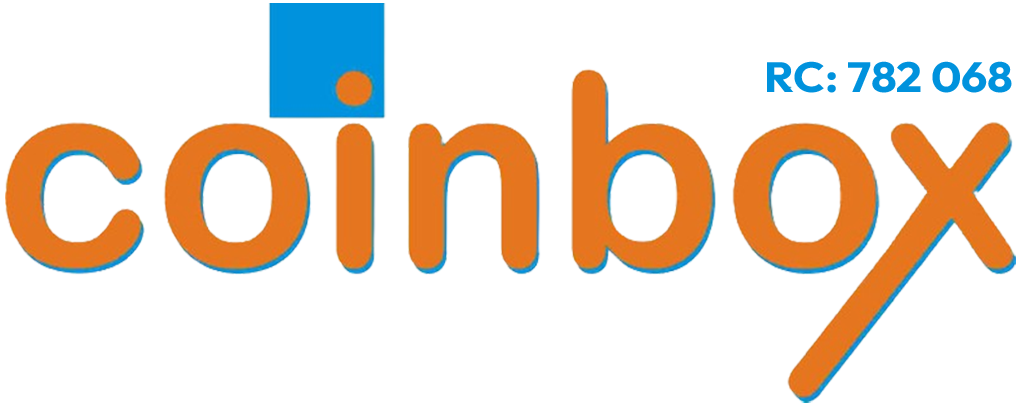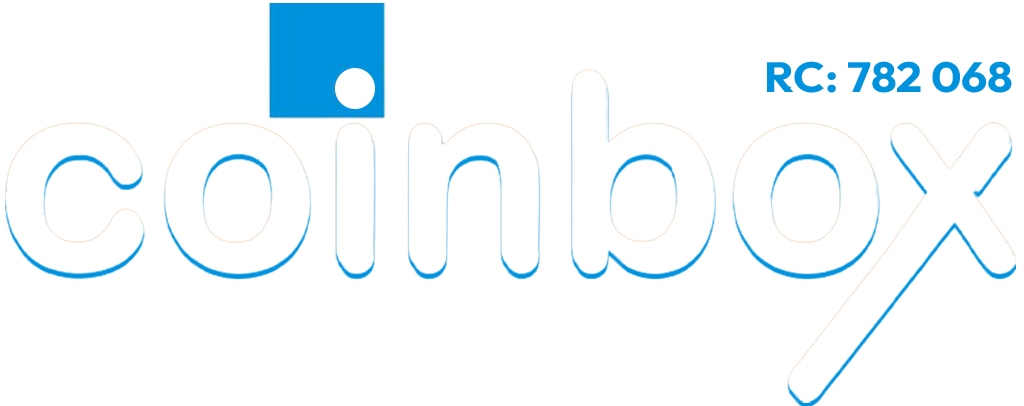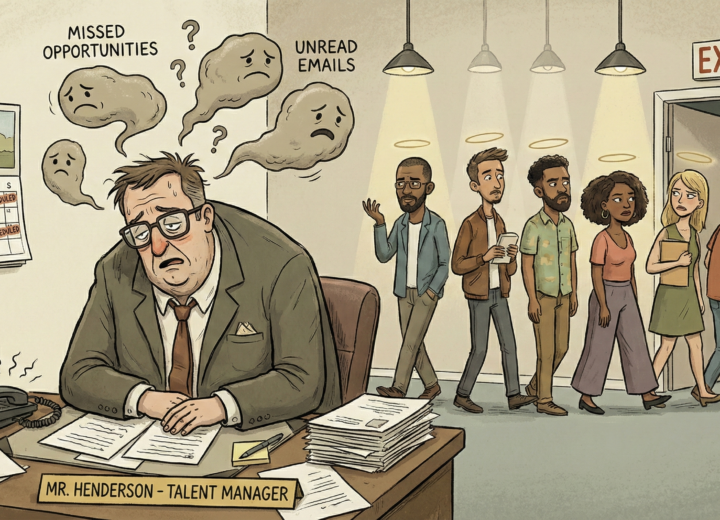The Trojan Horse in Your Office: Unmasking the True Cost of a Bad Hire.
Welcome back, entrepreneurs and HR trailblazers! Today, we’re tackling a hidden saboteur in many organizations – the “wrong hire.” It’s a costly mistake, often made in haste, and its repercussions can echo through your business for months, even years.
Hiring, especially in a dynamic and often challenging environment like Nigeria, is a high-stakes game. The allure of quickly filling a vacant seat can be intoxicating. But just like that beautiful, enticing wooden horse gifted to the Trojans, an ill-fitting employee can silently infiltrate your operations, bringing unexpected ruin.
This isn’t just about someone who isn’t “good enough.” It’s about someone who is fundamentally misaligned – with the role, the team, the culture, or even your company’s very mission. And the cost? Far, far greater than a wasted salary.
The Story of “The Disruptor”

Let me introduce you to Emeka. He was brought into a rapidly growing fintech startup in Lagos as a Senior Product Manager. His CV was stellar – impressive international experience, big-name companies on his resume. The interview, though perhaps a little rushed, seemed to confirm his brilliance. Everyone was excited.
But within weeks, the cracks began to show. Emeka was technically capable, no doubt. But he was consistently late, missed team meetings, and seemed to have a knack for alienating junior staff with his dismissive attitude. He refused to collaborate, preferring to work in isolation, and often dismissed local market insights as “not global enough.”
His team, initially impressed, quickly became demotivated. Key projects stalled because of his inability to integrate. Customer feedback started pointing to a lack of understanding from his department. Other talented product managers, seeing the toxic dynamic, began to update their CVs. The initial excitement around Emeka turned into a heavy dread, costing the company precious time, money, and talent.
Emeka was technically “right” on paper, but entirely “wrong” for that specific organization. This is the heart of the problem.
The Cascading Dominoes: Short, Medium, and Long-Term Implications

Recruiting the wrong employee is like pushing over the first domino in a very long, very expensive chain reaction.
Short-Term Effects:
- Immediate Productivity Drop: The new hire either can’t perform the tasks effectively or needs excessive handholding, diverting resources from productive work.
- Wasted Onboarding Costs: Money and time spent on training, setup (laptops, desk space), and initial salary are essentially thrown away.
- Team Disruption & Frustration: Colleagues are forced to pick up slack, correct errors, or navigate personality clashes, leading to immediate stress and reduced morale.
- Recruitment Redo: You’re back to square one, having to re-advertise, re-interview, and re-invest in the hiring process.
Medium-Term Effects:
- Financial Bleed: Beyond initial costs, you’re looking at continued salary, potential severance pays, legal fees if termination isn’t handled correctly, and the ongoing opportunity cost of the role remaining unfilled or underperforming. Studies suggest a bad hire can cost an organization 30% to 150% of the employee’s annual salary – a significant chunk, especially for Nigerian SMEs.
- Cultural Erosion: A single toxic hire can quickly sour the team environment. Trust diminishes, collaboration suffers, and the positive energy that once defined your workplace begins to dissipate.
- Managerial Bandwidth Drain: Managers spend disproportionate time dealing with performance issues, conflicts, or damage control instead of focusing on strategic initiatives and team development.
- Stagnated Innovation: An unengaged or poorly performing employee can block new ideas, delay projects, and prevent the flow of creativity essential for growth.
Long-Term Effects:
- Brand Damage (Employer & Business):
- Employer Brand: Word spreads. Top talent in your industry will hear about negative experiences, making it harder to attract high-quality candidates in the future. Your reputation as a desirable place to work takes a hit.
- Business Brand & Customer Service: If the wrong hire interacts with customers (e.g., sales, customer service, project management), their poor performance or negative attitude directly impacts client satisfaction. This can lead to lost clients, negative reviews, and a damaged public image. Think of that one time a rude customer service agent made you swear off a company – it was probably a “wrong hire.”
- Talent Exodus: Your high-performing, culturally aligned employees, fed up with carrying the burden or dealing with negativity, might leave. This is arguably the most devastating long-term impact. You lose your most valuable assets.
- Stifled Growth: The accumulated effects of low morale, high turnover, and poor performance can fundamentally slow down your company’s ability to innovate, expand, and achieve its strategic objectives.
Why Do We Get It Wrong? The Pitfalls of Recruitment

So, why do smart organizations, even with the best intentions, recruit the wrong people?
- Haste Makes Waste: The urgent need to fill a vacancy often trumps thorough vetting. “We need someone now!” becomes the mantra, leading to rushed decisions.
- Poor Job Definition: A vague job description means you don’t truly know who you’re looking for. You’re aiming at a moving target, hoping to hit something.
- Overemphasis on Technical Skills, Underemphasis on Cultural Fit: We get dazzled by certifications and experience, forgetting that skills can be taught, but attitude, values, and work ethic are far harder to change.
- Interview Bias (Unconscious or Conscious): We often hire people who remind us of ourselves, or we fall for charisma over substance. “Gut feeling” can be notoriously unreliable.
- Inadequate Interview Process: Lack of structured interviews, insufficient probing questions, or not involving enough relevant stakeholders in the process.
- Lack of Background Checks: Skipping reference checks or verifying credentials can lead to hiring individuals with inflated resumes or problematic pasts.
- Ignoring Red Flags: Sometimes, deep down, we know something isn’t quite right, but we ignore the subtle warning signs in favor of perceived qualifications.
- Limited Talent Pool: In some specialized fields in Nigeria, the pool of candidates might be small, leading organizations to settle for less-than-ideal fits.
Preventing the Pain: Strategies for Smarter Hiring

The good news? The majority of “wrong hires” are preventable.
- Define the Role, Deeply: Go beyond technical skills. What are the core values, behaviors, and soft skills essential for success in this role within your specific culture? Use a “Culture Fit Matrix” – list your core values and rate candidates against them.
- Structured Interviewing: Ask every candidate the same core questions, then follow up with behavioral questions (e.g., “Tell me about a time when you…”). This reduces bias and allows for objective comparison.
- Practical Exercise: For your next hire, before interviewing, sit with the hiring manager and list 5-7 core behavioral competencies (e.g., problem-solving under pressure, teamwork, adaptability). Develop 2-3 situational questions for each.
- Diverse Interview Panels: Include team members from different departments or levels. This provides multiple perspectives and reduces individual bias.
- Skills Assessments & Work Samples: Don’t just ask if they can do it; see if they can do it. A short test, a case study, or a portfolio review is invaluable.
- Thorough Reference Checks: Call previous supervisors, not just friends or relatives. Ask specific, probing questions about performance, work ethic, and ability to work in a team.
- “Trial Period” with Intent: Make the probation period a robust assessment period. Provide clear expectations and frequent feedback. Don’t be afraid to part ways if it’s clearly not working.
- Invest in Your Employer Brand: Showcase your company culture genuinely. This attracts candidates who are already likely to be a good fit.
- Onboarding with Purpose: A great hire can turn into a bad one if onboarding is poor. Ensure clear expectations, mentorship, and continuous support in the initial weeks/months.
The Role of Technology and Emotional Intelligence: Trends Past, Present, and Future

Recruitment has come a long way from simply placing an ad in the newspaper.
Past Trends (Dying Out):
- Resume-only Screening: Solely relying on CVs, which can be easily embellished.
- “Gut Feeling” Hiring: Interviewers making decisions based on charisma or personal rapport, ignoring objective data.
- One-and-Done Interviews: A single interview with one person determining a hire.
- Transactional Recruitment: Focusing only on filling a vacancy, not on long-term fit or retention.
Current Trends (Here to Stay & Evolving):
- AI and Automation:
- Resume Screening: AI-powered Applicant Tracking Systems (ATS) can quickly sift through thousands of applications, matching keywords and skills to job descriptions, significantly reducing manual effort.
- Chatbots: For initial candidate engagement, answering FAQs, and scheduling interviews, improving candidate experience and freeing up HR time.
- Data Analytics: Tracking metrics like time-to-hire, cost-per-hire, and source-of-hire to optimize recruitment strategies.
- Skills-Based Hiring: Moving beyond degrees and traditional qualifications to focus on demonstrable skills and competencies. This is particularly relevant in Nigeria where practical experience often outweighs formal education.
- Employer Branding & Candidate Experience: Companies actively cultivating their online presence (social media, career pages) to attract talent. The candidate journey, from application to onboarding, is designed to be positive and engaging.
- Diversity, Equity, and Inclusion (DEI): Intentional efforts to build diverse teams, recognizing that varied perspectives drive innovation and better decision-making. Technology helps by reducing bias in screening.
- Remote/Hybrid Work Recruitment: The pandemic accelerated this. Recruitment now spans geographical boundaries, demanding virtual interview tools and remote onboarding strategies.
The Rising Star: Emotional Intelligence (EQ)
While AI handles the data, Emotional Intelligence (EQ) is becoming the bedrock of effective human-centric recruitment. It’s the ability to understand and manage one’s own emotions, and to perceive and influence the emotions of others.
- In Hiring Managers: An EQ-driven hiring manager can better read candidates beyond their practiced answers, understand their motivations, assess their potential cultural fit, and conduct empathetic interviews.
- In Candidates: Hiring for EQ means seeking individuals who are adaptable, resilient, good communicators, collaborative, and possess strong self-awareness – critical traits that often differentiate a good employee from a truly great one, especially in dynamic environments.
Future Trends (On the Horizon):
- Predictive Analytics for Retention: AI will not just predict who to hire, but who is likely to succeed and stay, using internal performance data and external market trends.
- Gamified Assessments: Using game-like scenarios to assess cognitive abilities, problem-solving skills, and personality traits in an engaging, less intimidating way.
- Virtual Reality (VR) for Immersion: Allowing candidates to “experience” the workplace or a typical workday through VR simulations before accepting a role, providing a more realistic preview.
- Blockchain for Credential Verification: Securely verifying qualifications and work history, combating resume fraud and speeding up background checks.
- Hyper-Personalization: Tailoring the recruitment journey and communication to each individual candidate, based on their skills, preferences, and engagement.
Why Does This Matter to Your Organization? And How Coinbox Limited Can Help
 Coinbox Limited, Providing Solutions!!!
Coinbox Limited, Providing Solutions!!!
In a competitive landscape where talent is king, getting recruitment right isn’t a luxury – it’s a strategic imperative. The right people are your biggest asset; the wrong ones, your greatest liability. For Nigerian businesses, where economic headwinds are constant, maximizing every resource, especially human capital, is paramount. Investing in robust recruitment saves you money, time, and safeguards your brand. It builds a resilient, thriving workforce capable of navigating challenges and seizing opportunities.
This is where Coinbox Limited comes in. We understand the unique intricacies of the Nigerian business environment and the universal principles of effective recruitment.
At Coinbox Limited, we don’t just fill vacancies; we partner with you to build high-performing teams that align with your strategic goals. We leverage:
- Strategic People Management: Our HR consulting services focus on developing clear job descriptions and cultural fit profiles that go beyond generic templates.
- Talent Acquisition Expertise: We employ structured interview methodologies, robust assessment tools (including psychometrics where appropriate), and thorough background checks to ensure you get the right fit.
- Technology Integration: We help you identify and implement the right AI-powered tools and ATS platforms to streamline your recruitment process, improve efficiency, and widen your talent pool.
- Focus on EQ and Soft Skills: We help you craft interview questions and assessment frameworks that uncover the crucial emotional intelligence and soft skills necessary for success in your specific environment.
- Employer Branding Consultancy: We guide you in showcasing your unique value proposition to attract top talent and enhance your market reputation.
- Onboarding & Retention Strategies: Our services extend beyond hiring, helping you create impactful onboarding programs and retention strategies that turn good hires into long-term assets.
We are committed to helping you avoid the hidden costs of wrong hires, ensuring your investment in human capital yields maximum returns.
Final Thoughts

The “wrong hire” isn’t a distant problem; it’s a tangible threat that can erode your profits, shatter your culture, and diminish your brand. But it’s a threat that can be neutralized with intentionality, strategic planning, and the right partnership.
Practical Exercise for Your Office:
- Gather your hiring managers. Ask them: “Think about the last ‘wrong hire’ we made. What was the true cost? (Financial, emotional, productivity).
- What specific steps could we have taken differently during the recruitment process to avoid that outcome?”
Thought-Provoking Questions for Discussion:
- What is the biggest “blind spot” in your current recruitment process?
- How can you better integrate cultural assessment into your hiring without sacrificing diversity?
- Are you truly investing in your employer brand, or just posting job ads?
Don’t let a seemingly innocuous hiring decision become a Trojan horse for your business. Be strategic. Be empathetic. Be thorough.
Are you ready to transform your recruitment process and build a team that will propel your business forward? Reach out to Coinbox Limited today. Let’s make sure your next hire is your best hire.
Ayo Emakhiomhe





